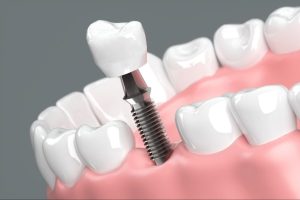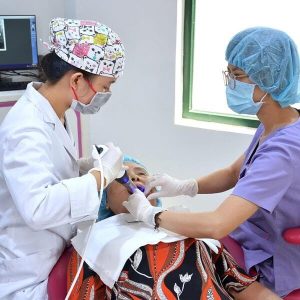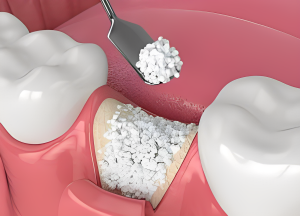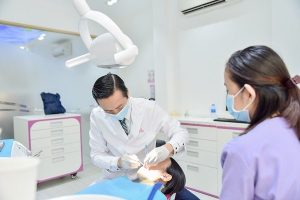Table of content
A proper diet following dental implant placement significantly contributes to the success of the procedure. A well-planned diet not only minimizes the risk of infection but also promotes faster healing. So, what should you eat or avoid after getting dental implants? Elite Dental provides detailed guidance in the following article.
1. Recommended Foods After Dental Implant Surgery
To promote quick recovery, patients should include the following food groups in their diet:
1.1. Soft and Liquid Foods
Opt for soft and liquid foods such as porridge, soup, or smoothies. These foods require minimal chewing, reducing strain on the jaw and minimizing pressure on the newly placed implant. This helps alleviate pain and accelerates the healing process.
1.2. Foods Rich in Vitamin D
Incorporate Vitamin D-rich foods such as fish, eggs, and dairy products. Vitamin D plays a crucial role in calcium metabolism and maintaining bone structure, which enhances the integration between the titanium implant and the jawbone.

1.3. Fruits
Fruits like grapefruit, oranges, strawberries, avocados, bananas, blueberries, raspberries, pomegranates, plums, and grapes are high in vitamins and minerals. These nutrients help reduce inflammation, speed up wound healing, and boost immunity, minimizing fatigue and susceptibility to illnesses during recovery.
1.4. Vegetables
Vegetables such as broccoli, potatoes, carrots, bell peppers, leafy greens, and legumes are rich in essential vitamins (A, B, D, K, E) and minerals (like folate, iron, phosphorus, potassium, magnesium, and calcium). These nutrients restore energy, strengthen the jawbone, and support faster wound recovery.
2. Foods to Avoid After Dental Implant Surgery
To ensure optimal recovery and prevent complications during the healing process, patients should avoid the following foods:
2.1. Hard and Chewy Foods
Titanium implants require a period of rest to integrate securely with the jawbone. Avoid chewing or biting hard, chewy foods as these actions may strain the implant area, prolong recovery, weaken the implant’s stability, and cause pain or complications.
2.2. Spicy or Acidic Foods
Spicy foods can cause irritation and a burning sensation in the wound area, while acidic foods can lead to tooth sensitivity and gum irritation if consumed before the wound has healed.
2.3. Foods with Extreme Temperatures
Avoid foods or beverages that are too hot or too cold. Extremes in temperature can cause tooth sensitivity, disrupt the healing process, and even lead to prolonged bleeding or gum damage.
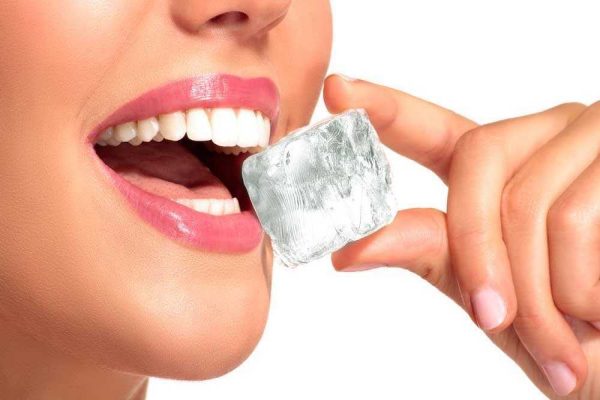
2.4. Alcohol and Carbonated Beverages
Refrain from consuming alcohol and carbonated drinks for at least four weeks post-surgery. These can slow down healing, increase the risk of infection, and negatively affect neighboring teeth.
3. Follow a Standard Diet Plan for Each Stage After Implant Placement
To ensure the best recovery for your dental implant, patients should pay close attention to their diet at different stages after the procedure. Specifically:
3.1. During the First 24 Hours
In the first hour after surgery, patients should avoid eating and minimize chewing activities. Later, they can consume soft, liquid foods but should avoid touching the wound and minimize sticky foods.

3.2. The 2–3 Days Following the Implant Procedure
As the implant site begins to heal, maintain the same diet as on the first day while adding vegetables and juices to provide essential nutrients for the body.
During this period, patients should strictly avoid chewy, hard, overly cold, or hot foods to prevent complications.
3.3. The Following Two Weeks
If a proper diet is maintained during the initial days, the wound will gradually stabilize during this time, and pain will subside, leaving the patient more comfortable. At this point, normal eating can resume, but soft and easy-to-chew foods are still recommended.
It’s important to note that while the external wound may appear healed, the implant is not yet fully integrated. Therefore, avoid touching the implant site with the tongue, hands, or any objects.
Many patients wonder if they can eat chicken after an implant procedure. After approximately one week, patients can consume soft, shredded chicken.
Summary: What to Avoid and What to Eat After Dental Implant Surgery
These are foods that are hard, tough, sour, spicy; foods and drinks that are too hot or too cold; alcohol, beer, and carbonated drinks. Additionally, it’s important to avoid stimulants and refrain from high-intensity sports activities.
What should you eat after getting dental implants?
Patients should prioritize soft, liquid foods; foods rich in Vitamin D; fruits; vegetables… to accelerate the healing process of the wound.
Additionally, customers should pay attention to regular oral care and follow-up appointments as advised by the dentist. If there are any abnormal signs, it is important to contact the dentist for timely treatment.
Furthermore, to minimize unwanted risks, it’s best to choose a reputable dental clinic with experienced dentists. Dental implant surgery is quite complex, and if the dentist’s skills are inadequate, incorrect techniques may lead to swelling, bleeding at the implant site, difficulty in the integration of the implant with the jawbone, loosening of the implant, and even damage to nerves and surrounding tissues.
>> Tips for you: Where to Get the Best and Most Reliable Dental Implants in Ho Chi Minh City?
Elite Dental proudly stands as one of the leading Implant centers in the country, trusted by thousands of customers for over 10 years. Not only does it have a team of highly skilled and experienced dentists, but it also provides dedicated patient care.
From each stage of implant placement to the attachment of crowns and the post-treatment phase, the dentists will guide patients meticulously on care and dietary guidelines. Rest assured, the entire treatment process at Elite is closely monitored, ensuring the success of the implant procedure in one session, minimizing complications and risks.
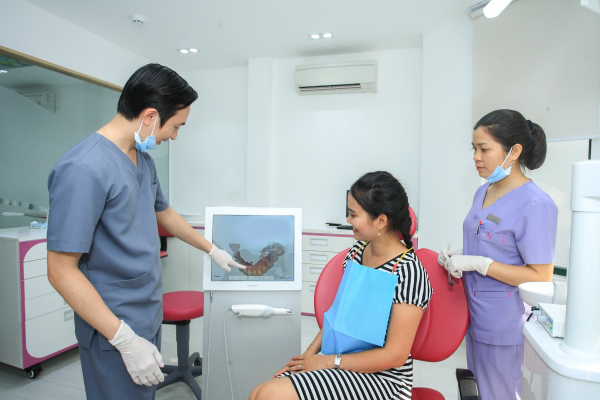
If you still have any questions about what to eat and avoid after getting dental implants, you can contact the treating dentist directly, or call the Hotline 0902 559 888 for more specific answers.
Tips for you: >> Does Getting Dental Implants Hurt? What Factors Influence the Pain? >> Real Experience: 7 Essential Tips for Implant Dentistry


